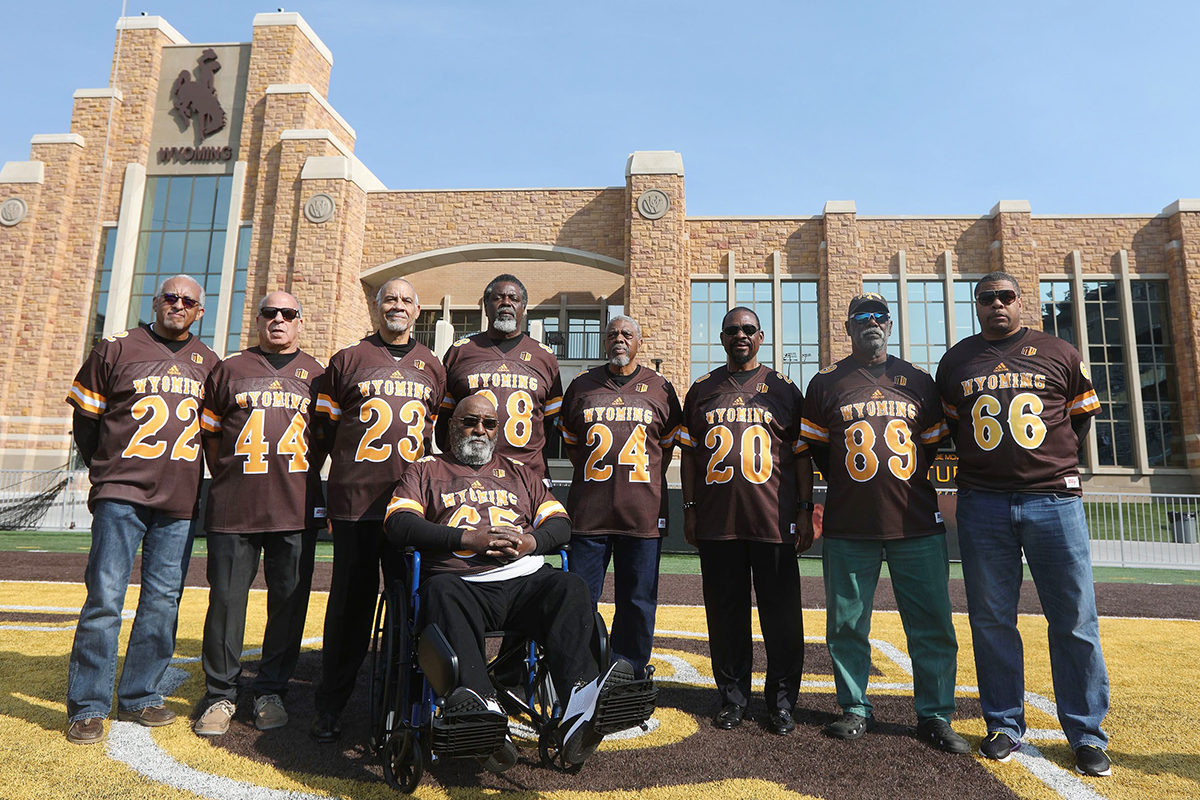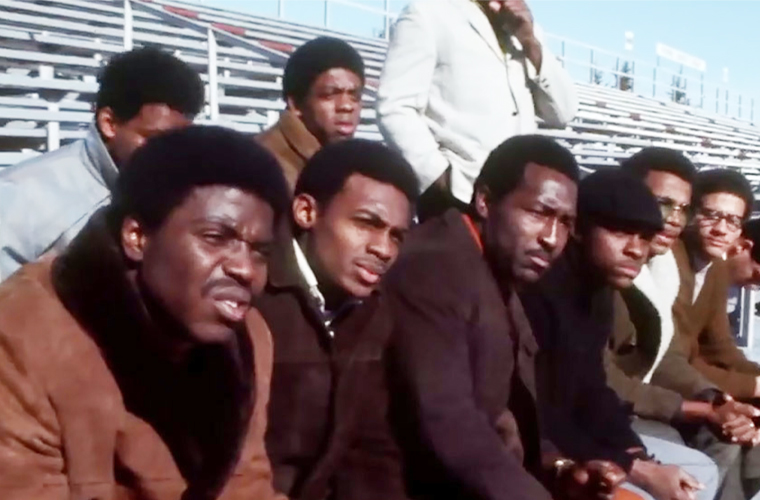The Wyoming Black 14 incident was not just a simple case of athletes wanting to make a statement during a football game. It was a complex issue that involved racism, discrimination, and the limits of free speech in college athletics.
At the time, the Mormon Church, which owned Brigham Young University, did not allow black men to hold the priesthood. This policy was seen by many as discriminatory, and the Black 14 wanted to use their platform as football players to bring attention to the issue. They believed that wearing black armbands during the game would be a powerful and peaceful way to protest.
However, their coach, Lloyd Eaton, did not agree with their protest and felt that it was disrespectful to Brigham Young University. He saw the players’ actions as insubordination and dismissed them from the team. This decision had serious consequences for the Black 14, who lost their scholarships and faced backlash from their peers and the community.

The incident sparked outrage and protests across the country, with many people supporting the Black 14’s right to free speech and peaceful protest. The players themselves felt that they had been treated unfairly and that their rights had been violated. They filed a lawsuit against the university, claiming that their dismissal had been racially motivated and a violation of their First Amendment rights. The case was eventually settled out of court for an undisclosed amount.
The Wyoming Black 14 incident has become an important moment in the history of athlete activism and civil rights. It highlighted the power of athletes to speak out against injustice and discrimination and showed that even in the world of college sports, athletes have a voice and can use it to effect change. Today, the Black 14 are remembered as pioneers in the fight for racial equality in college athletics.

